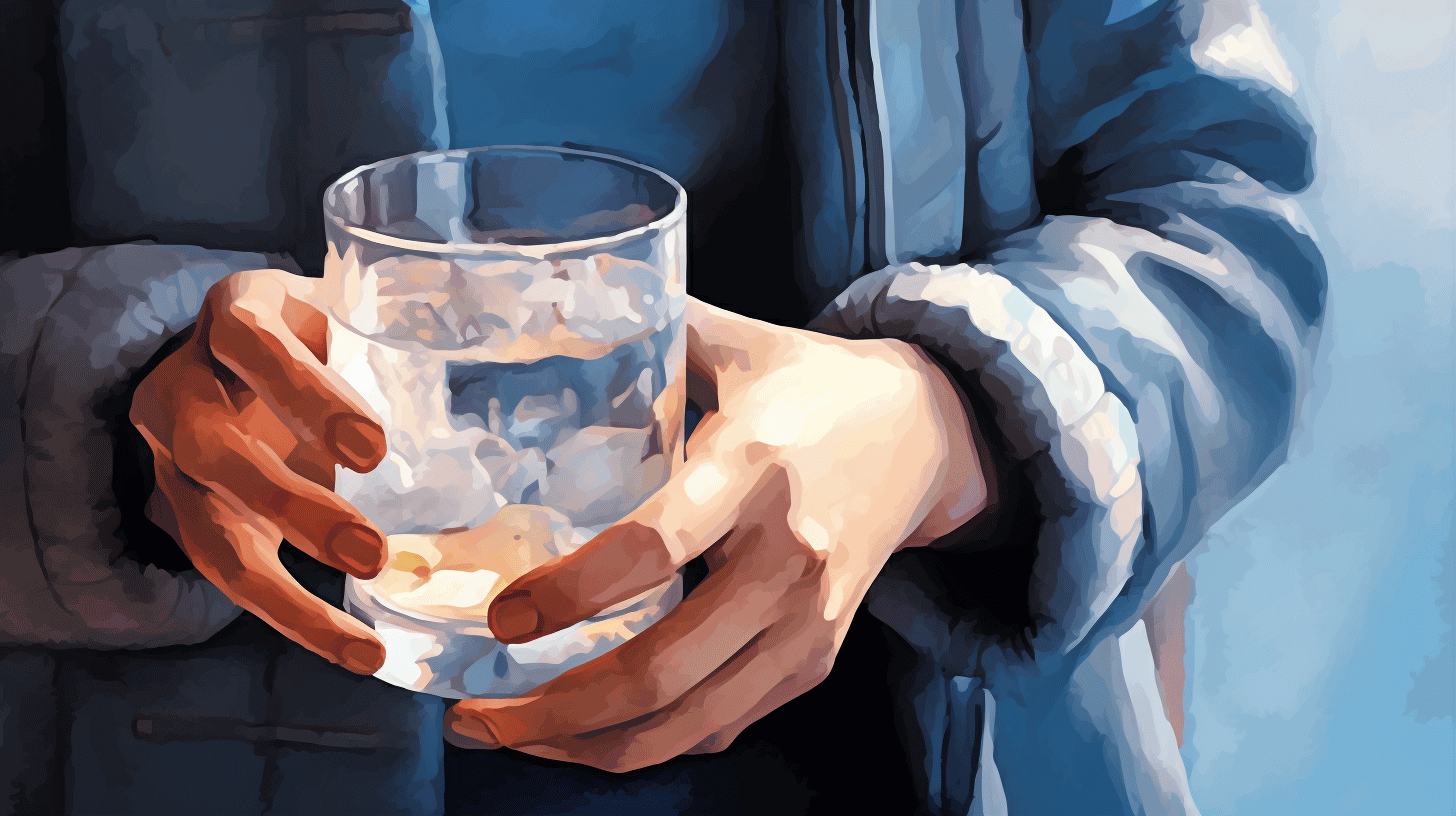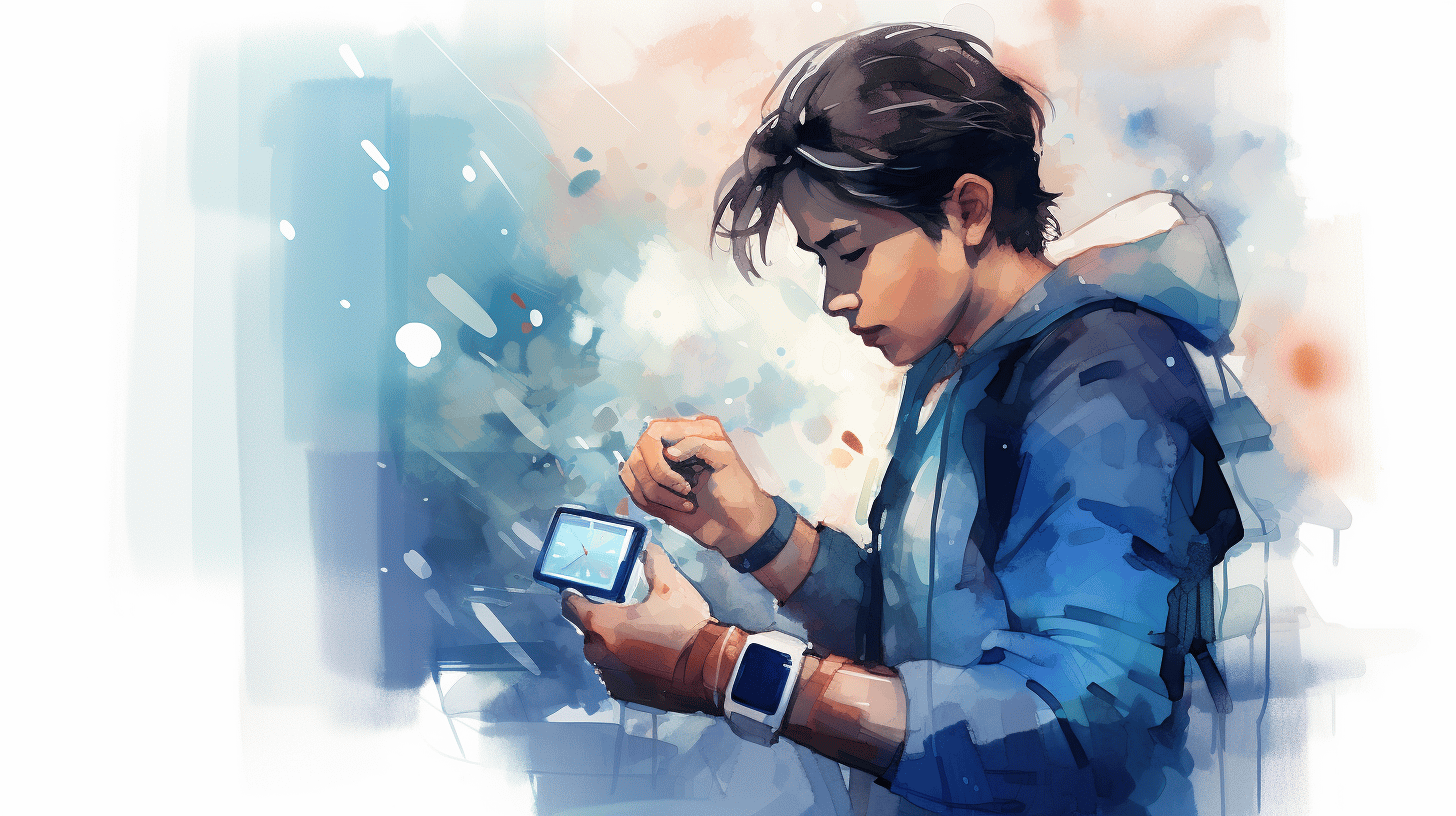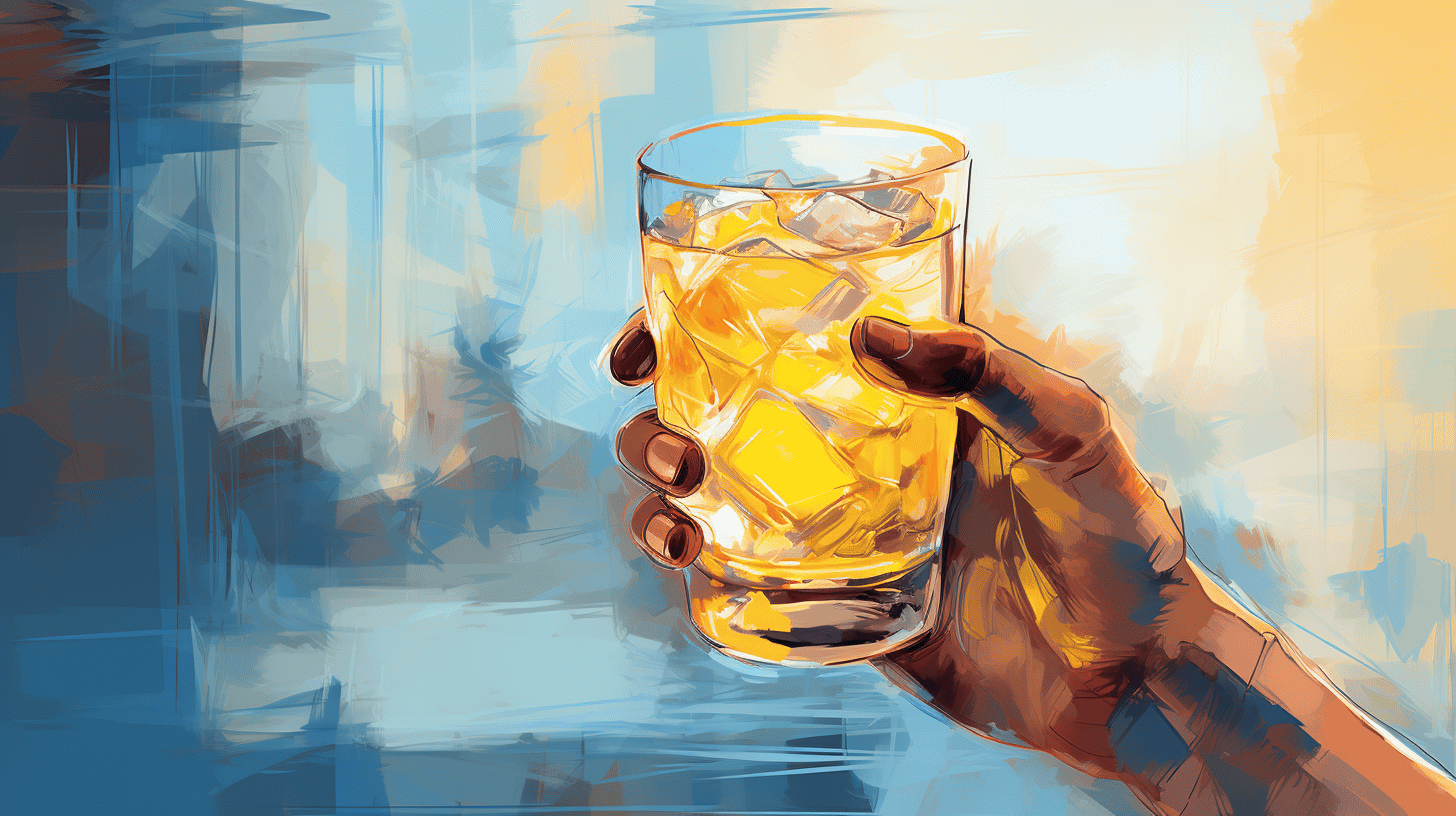Grab yourself a cozy drink, settle down, and let's talk about a serious topic that needs our collective attention - drink spiking. We've heard stories from friends or glimpsed chilling headlines about it. It's important to understand not just the reality of these situations, but also ways to protect ourselves and our loved ones from such terrifying incidents. In today's discussion, we'll delve into the depths of this subject, shedding light on what drink spiking entails, why it's more prevalent than we might realize, the criminal implications, and importantly, proactive steps we can take to protect ourselves. Equipped with knowledge, we can turn our attention to ensuring our favorite watering holes remain places of comfort and enjoyment, instead of fear and anxiety. So, let's journey together through this important topic and put our safety first.
Understanding Drink Spiking
For many, a night out with friends, an intimate date, or a cozy gathering in a familiar location represents an evening of fun, laughter, and camaraderie. However, unbeknownst to many, there lurks a menacing threat that has the potential to transform such joyous occasions into life-altering nightmares - a risk known as drink spiking. Today, we delve into this serious issue, explore why it's so vital to Recognize the Threat of Drink Spiking, and uncover ways to ensure it doesn't impact you or your loved ones.
Definition of Drink Spiking
So, what exactly is drink spiking? In essence, it’s the act of adding a substance to someone's drink without their knowledge or consent. Typically, these substances are drugs or alcohol that can impair a person's consciousness or decision-making capacity. The possible motives behind spiking a drink range from harmful pranks to criminal activities such as theft, assault, or even more sinister crimes.
Common Substances Used for Drink Spiking
Of course, any substance that reduces awareness, judgment, or physical capability can be used in drink spiking. However, some substances are more common than others due to their potency and accessibility.
- Alcohol: Often underestimated, excess alcohol is relatively accessible and can dramatically impact a person's ability to think and act clearly.
- Prescription Drugs: Certain prescription drugs — especially those with sedative properties — can also be misused as spiking agents. They often go undetected due to their lack of color, taste, and smell.
- Illicit Drugs: Some illegal drugs like ketamines (street name: 'Special K') or gamma-hydroxybutyric acid (GHB) are also known for their use in spiking due to their powerful unconsciousness-inducing effects.
It's crucial to be aware and vigilant in any social setting. Knowing how to Recognize the Threat of Drink Spiking is the first step in protecting yourself and others from this unnerving, and potentially dangerous, situation. The saying goes, "knowledge is power," and in this case, it might very well be your most potent protection.
The Prevalence of Drink Spiking
When gathered in a convivial atmosphere, we often let our guard down and embrace the spirit of the occasion. However, it's a disturbing reality that this trust can sometimes be exploited through activities like drink spiking. An alarming number of people have experienced this act, which often goes unnoticed until it's too late.
Drink spiking involves someone adding a substance such as drugs or alcohol to another person's drink without their consent. This deceitful act is a direct violation of trust and personal safety — and, sadly, it's more common than we'd like to believe.
Recent YouGov poll data from December 2022 revealed that a shocking 10% of women and 5% of men reported experiencing drink spiking. Additionally, police data indicates that our younger population is particularly vulnerable. An astonishing one in ten individuals under the age of 25 have fallen victim to this unscrupulous act.
The statistics also stretch across different demographics. While the majority of victims are females in their early twenties, it’s crucial to note that victims are found across all ages and genders.
These figures offer a sobering reminder of the prevalence of drink spiking. It lurks in the shadows of our society and can affect anyone, irrespective of age, gender or circumstances.
So, next time you're in a crowded bar, at a party, or in the midst of any festive gathering, remember to stay vigilant. Keep an eye on your drink, be mindful of your surroundings and take care of each other. Because as these figures reveal, the reality and the impact of drink spiking are far more widespread than we might assume.
Implications of Drink Spiking
Entering the vibrant world of nightlife, bars, and clubs brings about exhilaration, freedom, and endless fun. However, lurking in the shadows of these pleasurable moments is a sinister threat we often underestimate – drink spiking. As we embark on this exploration of its implications, let's establish an often ignored truth: drink spiking is an act of premeditated crime.
Drink Spiking as Premeditated Criminal Behavior
The alarming prevalence of drink spiking undermines the core essence of social interaction and trust. This contrived act leaves victims feeling violated, traumatized, and fearful. Drink spiking, it's essential to remember, is no accident. It is a calculated and purposeful action, the perpetrators of which demonstrate a chilling disregard for the consent and safety of their victims.
- Spiked drinks can cause dizziness, nausea, unconsciousness, and in severe cases, potentially fatal medical emergencies.
- It takes away the right of individuals to make conscious decisions about their bodies and safety— a universal human right no one should ever infringe upon.
- It imposes a psychological burden on victims, brewing anxiety about social situations and potentially leading to post-traumatic stress disorder.
Without a shred of doubt, we must accept drink spiking as a sobering reality of our society, to equip ourselves with awareness and advocacy for necessary preventive measures.
Commonly Associated Crimes: Sexual Attacks
Drink spiking has chilling implications beyond the immediate physical and psychological consequences. A grave but all-too-common associated crime is a sexual attack. Astonishingly, estimates suggest that one-third of drink spiking incidents are related to a sexual attack, putting the severity of this issue in perspective.
Such assaults are not the consequence of spontaneous, uncontrolled desire but stem from predatory behavior:
- Perpetrators, in premeditated attempts, exploit the victim's incapacitation to avoid resistance and establish control.
- These horrific acts contribute to the global epidemic of sexual violence, perpetuating a culture of victim-blaming and silencing survivors.
- Research data from Australia indicates that individuals reporting drink spiking have, on average, consumed about 10 drinks – but the onus of guilt should always fall on the assailants, not the victims.
By recognizing the connections between drink spiking and other forms of criminal behavior, we can encourage empathetic conversations and strengthen the resolve to address these issues collectively.
What is clear is that the implications of drink spiking stretch far beyond the temporary physical effects on victims; they ripple into broader social and cultural narratives about safety, trust, and respect. It's a reminder that our fight against such despicable acts isn't over, and it's our shared responsibility to ensure everyone can enjoy their freedom, right to pleasure, and autonomy, free of fear, and full of trust.
Reporting Drink Spiking Incidents
Cheers to nights painted with unabashed laughter, entrancing music, and delightful conversations. Cheers also to our responsibility to remain attentive and safe amidst the revelry. Be it at parties, bars, or any gathering where libations flow, it's critical to be aware of an insidious menace, a potentially horrific turn an enjoyable night out can take – drink spiking. As unfortunate as it is to mention, only 7.2% of those who experienced drink spiking opted to report it to the police. It raises questions - Why is this figure alarmingly low? Are there barriers withholding witnesses or victims from reporting such incidents?
Barriers to Reporting
The cloak of silence surrounding drink spiking incidents isn't impenetrable. Several factors contribute to this wall of silence.
- Lack of Awareness: Many individuals may not be aware that their drink has been spiked. The symptoms often mimic excessive alcohol consumption, leading people to blame it on 'one too many drinks.'
- Stigma: The fear of judgement, blame, or the thought of becoming the face of gossip can deter victims from stepping forward.
- Insensitive reporting procedures: Unclear, time-consuming, or invasive reporting processes may discourage victims.
Despite these challenges, it's crucial to remember that we all have a responsibility to step forward and break the silence. Reporting these incidents isn't about individual retaliation - it's about collective responsibility to make our spaces safer.
Importance of Reporting
Imagine a world where drink spiking incidents don’t remain underreported, with only one-quarter of victims seeping through the cracks. Picture a world where every incident is promptly reported, where the perpetrators face the consequences of their actions, where the safety of our gatherings is reassured.
When drink spiking is reported, it allows:
- Increased accountability: The more incidents reported, the higher the chances of culprits being brought to justice.
- Enhanced safety measures: Reporting can lead to better safety protocols and precautions.
- Greater awareness: Reports can empower others with knowledge, enabling them to stay vigilant.
Drink spiking is not just an issue; it's a silent epidemic, creeping into our social spaces and events. Reporting such incidents can make a world of difference. We need to rise above the barriers, not just for ourselves, but for anyone who could potentially be the next victim. Together, let's transform cheers from a mere toast to a statement of safer spaces.
Practical Tips to Avoid Drink Spiking
Drink spiking, an illicit act where an unwelcome substance is added to your drink without your consent, is a growing concern in today's society. It's an insidious violation that can lead to severe health complications, unwanted behaviors, and potentially, criminal activities such as theft or assault. To help protect yourself and your loved ones, we've compiled practical safety tips to avoid drink spiking.
Safety Measures
Foremost, we believe prevention is always better than cure. That's why, when it comes to safeguarding your drinks, there are a few simple yet effective measures to take into account:
- Stay Mindful: Always keep an eye on your drink. If you're at a party or bar and must leave your glass unattended, it's wise to get a fresh drink when you return.
- Trust No One: Be extremely cautious when accepting drinks from strangers or casual acquaintances. Accept only drinks you've watched being prepared and delivered.
- Stick with Your friends: There's safety in numbers. By sticking together, you and your friends can keep a collective eye on each other's drinks, providing additional layers of protection.
- Identify the Bar Staff: Familiarize yourself with the tavern staff and make sure they know you're vigilant. Bar staff are generally trained to spot and thwart attempted drink spiking.
What to Do if You Think Your Drink Has Been Spiked
Despite your best precautions, there's still a chance that your drink could be tampered with. It's essential, in such circumstances, not to panic – but to act swiftly and smartly:
- Trust your Instincts: If something doesn't feel right, it probably isn't. If your drink tastes off, or you start to feel dizzy or disorientated, it's better to be safe than sorry.
- Inform a Trusted Friend or Staff Member: If you think your drink has been spiked, tell someone you trust immediately – a friend, or a member of the bar staff.
- Seek Medical Attention: Don't downplay your symptoms. Seek medical attention immediately if you feel markedly different to expected, given the amount you've consumed.
As we've shared, being proactive and vigilant are the keys to Protecting Yourself from Drink Spiking. Following these guidelines can minimize your risk and contribute to safer, better evenings out. Remember, your safety is paramount – never leave it to chance.
Conclusion
In the world we live in, personal safety should be our utmost priority. Drink spiking is an alarming issue with profound consequences. However, by becoming knowledgeable about these events, understanding the signs and learning to adopt preventative strategies we are moving in the right direction. At the same time, remember it's vital to report such incidents to the police, which helps in a collective effort to stop this criminal behavior.
To add an extra layer of security in your social situations, products like the unique drink cover scrunchies from Empowered by Ashley can provide peace of mind. Designed with your well-being in mind, these cover scrunchies are both fashionable and practical, making them a valuable companion in your fight against drink spiking.
Stay safe and remember, your empowerment is in your own hands! For more helpful safety tips and quality products, check out the Empowered by Ashley website here.
Remember, together we can build a safer world, one decision at a time.
Frequently Asked Questions
-
What is drink spiking?
Drink spiking refers to the act of adding illicit substances (such as drugs or alcohol) to someone's drink without their knowledge or consent.
-
Why do people spike drinks?
Drink spiking can occur for various reasons, including sexual assault, theft, bullying, or as a prank. It is a serious criminal offense.
-
How can I protect myself from drink spiking?
To protect yourself from drink spiking, it is recommended to: 1. Keep an eye on your drink at all times, 2. Avoid accepting drinks from strangers, 3. Open your own bottled or canned beverages, 4. Don't leave your drink unattended, and 5. Trust your gut instincts.
-
What are the common signs that your drink may have been spiked?
Common signs that your drink may have been spiked include sudden drowsiness, confusion, loss of coordination, memory loss, feeling unusually drunk or intoxicated, or experiencing unusual tastes or smells in your drink.
-
What should I do if I suspect my drink has been spiked?
If you suspect your drink has been spiked, it is important to: 1. Stay with trusted friends or move to a safe place, 2. Don't leave the venue alone, 3. Seek help from a bartender or security personnel, 4. Consider contacting the police, and 5. Get medical attention if necessary.




















Leave a comment
This site is protected by hCaptcha and the hCaptcha Privacy Policy and Terms of Service apply.